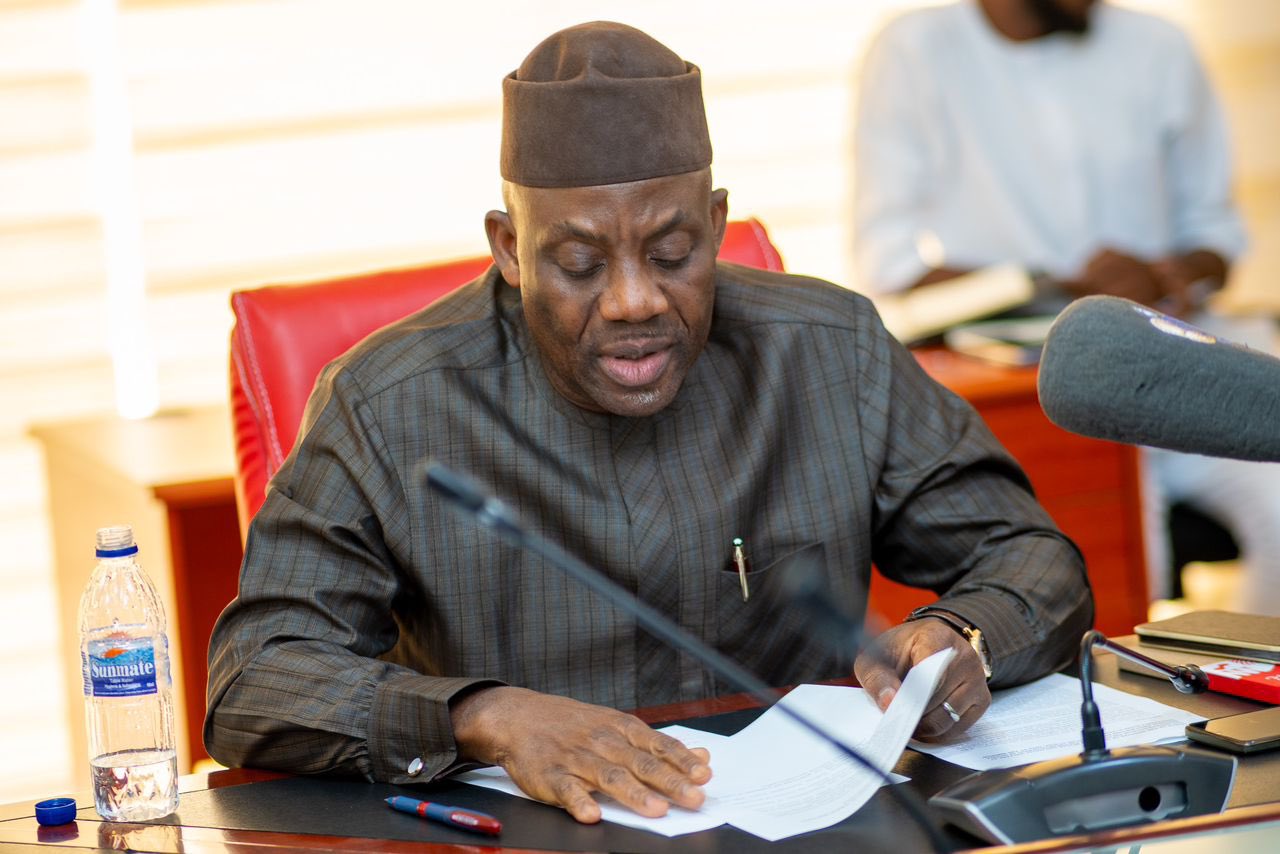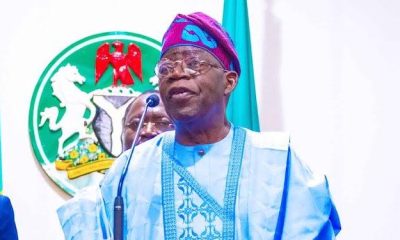Health
How Nigeria’s Digital In Health Initiative Will Improve Healthcare Outcomes For Nigerians – Tunji Alausa
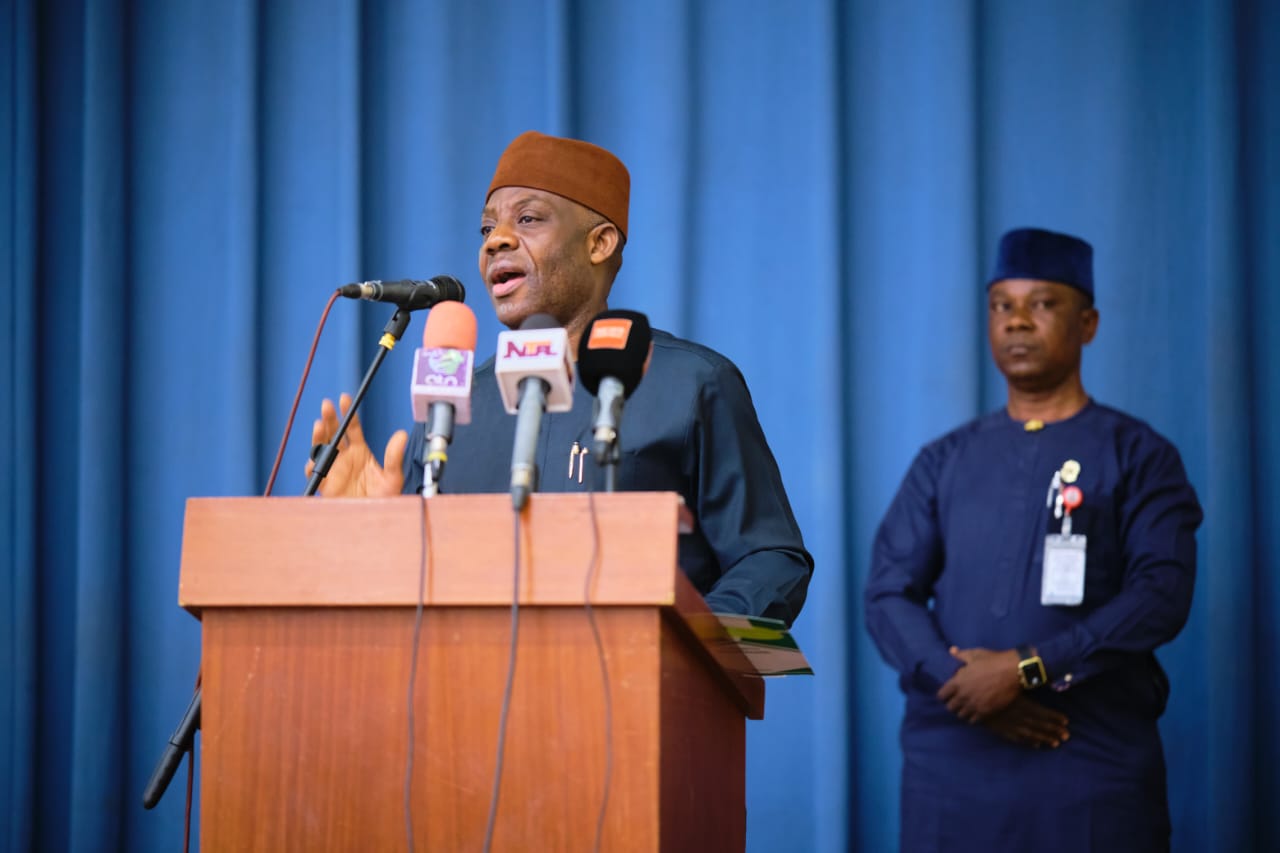
Eko Hot Blog reports that the Minister of State for Health and Social Welfare, Dr. Tunji Alausa, has explained how the Nigeria’s Digital In Health Initiative will improve health outcomes for Nigerians.
He made the case for the initiative’s significance on Friday at the inauguration of the implementation committee in Abuja.
EDITOR’S PICKS
-
Tunji Alausa Inaugurated As Chairman Of Nigeria’s Digital In Health Initiative
-
Oba Owolabi Olakulehin: All You Need To Know About The Next Olubadan Of Ibadan
-
Yahaya Bello Charged With Money Laundering As Witness Implicates Ex-Kogi Gov
Coordinating Minister of Health and Social Welfare, Prof. Mohammed Ali Pate, inaugurated the committee and appointed Dr. Alausa to chair the panel.
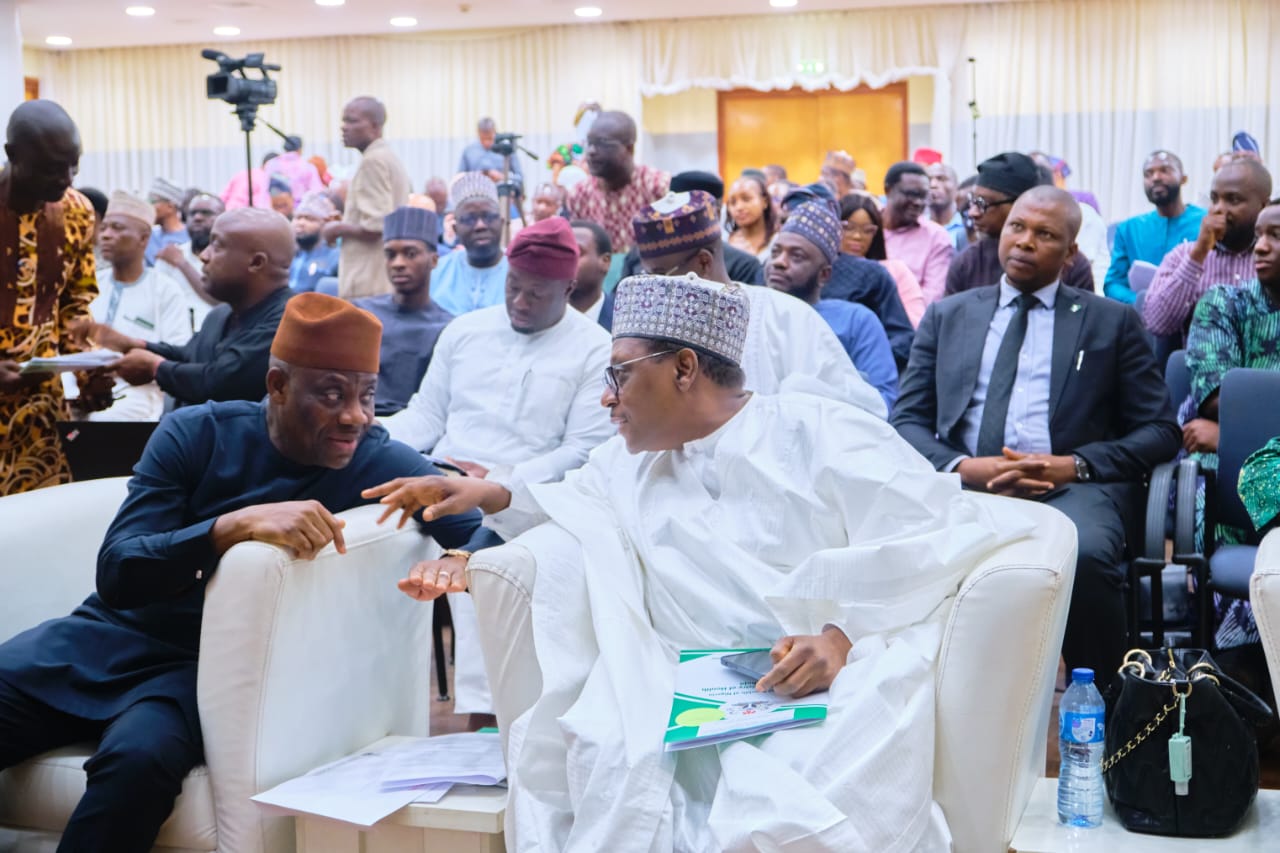
Minister of State for Health and Social Welfare, Dr. Tunji Alausa and Coordinating Minister of Health and Social Welfare, Prof. Mohammed Ali Pate at the inauguration of the implementation committee for Nigeria’s Digital In Health Initiative
In his inaugural speech as chairman of the implementation committee, the junior minister highlighted the negative effects of the current lack of adequate digitalisation in Nigeria’s health sector.
According to Dr. Alausa, there’s currently a lack of uniform data collection and management that has presented the Nigerian healthcare system with numerous challenges, limiting the development of the health industry, weakening decision-making and resulting in inefficient use of resources.
He noted that these challenges have made it difficult to have a comprehensive view of the healthcare environment.
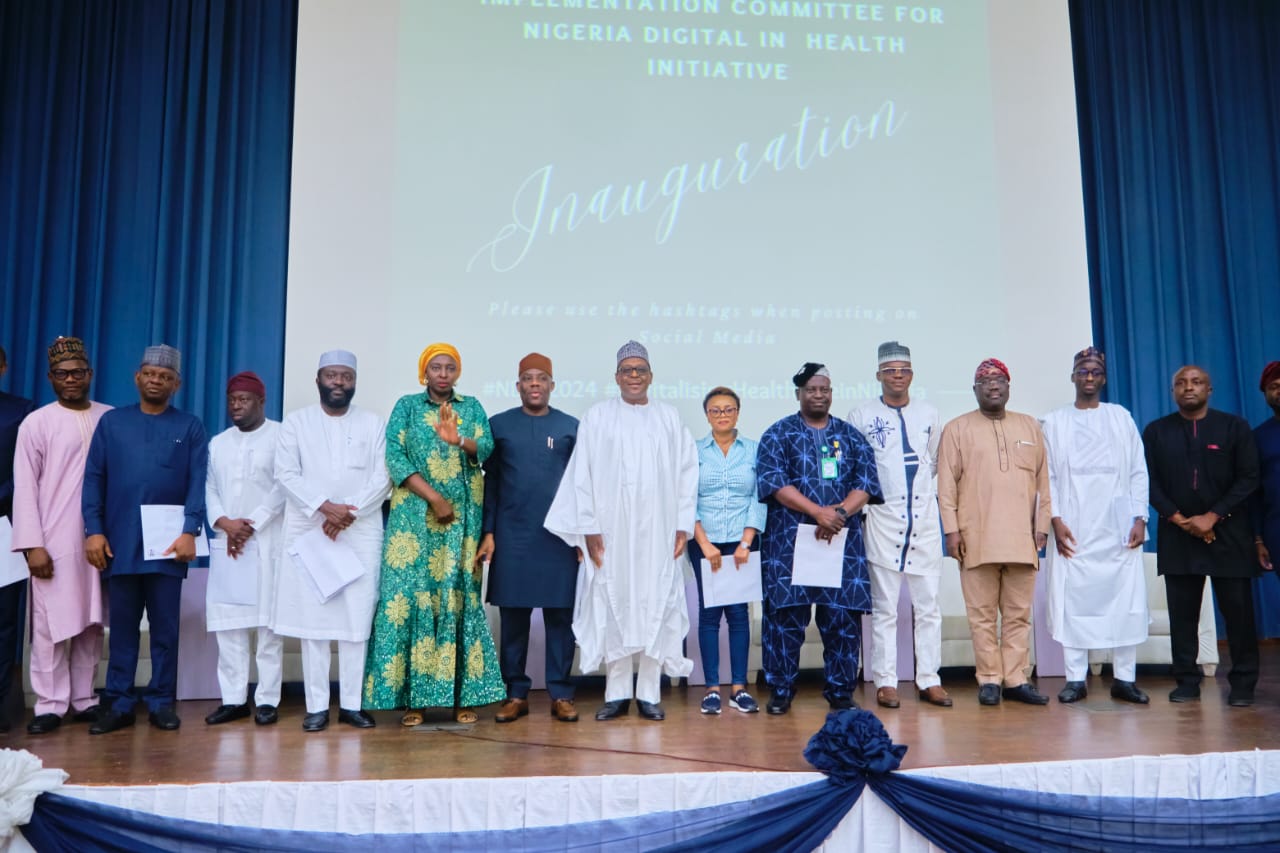
Coordinating Minister of Health and Social Welfare, Prof. Ali Pate, Minister of State for Health and Social Welfare, Dr. Tunji Alausa, and other members of the Implementation Committee for Nigeria’s Digital in Health Initiative
The minister stated that a national unified Electronic Medical Record (EMR) platform will serve as a central hub to enhance health system efficiency, ensure robust monitoring of public health and disease outbreaks, mortality rates, facilitate seamless data exchange and quality assurance, and foster opportunities for further research to strengthen our national health security.
Dr. Alausa further said digitalising the healthcare system is one of the key elements to achieving President Bola Ahmed Tinubu’s vision for the health sector, which includes effective governance, an efficient, equitable and quality health system, unlocking the value chain, and health security.
He also said the inauguration of the implementation committee for Nigeria’s Digital In Health Initiative is one step closer to creating an environment where Nigerians can rely on the country’s health system to serve them and their families.
FURTHER READING
-
Annual Returns Filing: LIRS Threatens Taxpayers With Court Action
-
Militia Creation: Miyetti Allah Leader To Face Trial On Terrorism Charge
-
Why Our Customers Are Experiencing Poor Internet Speed – MTN
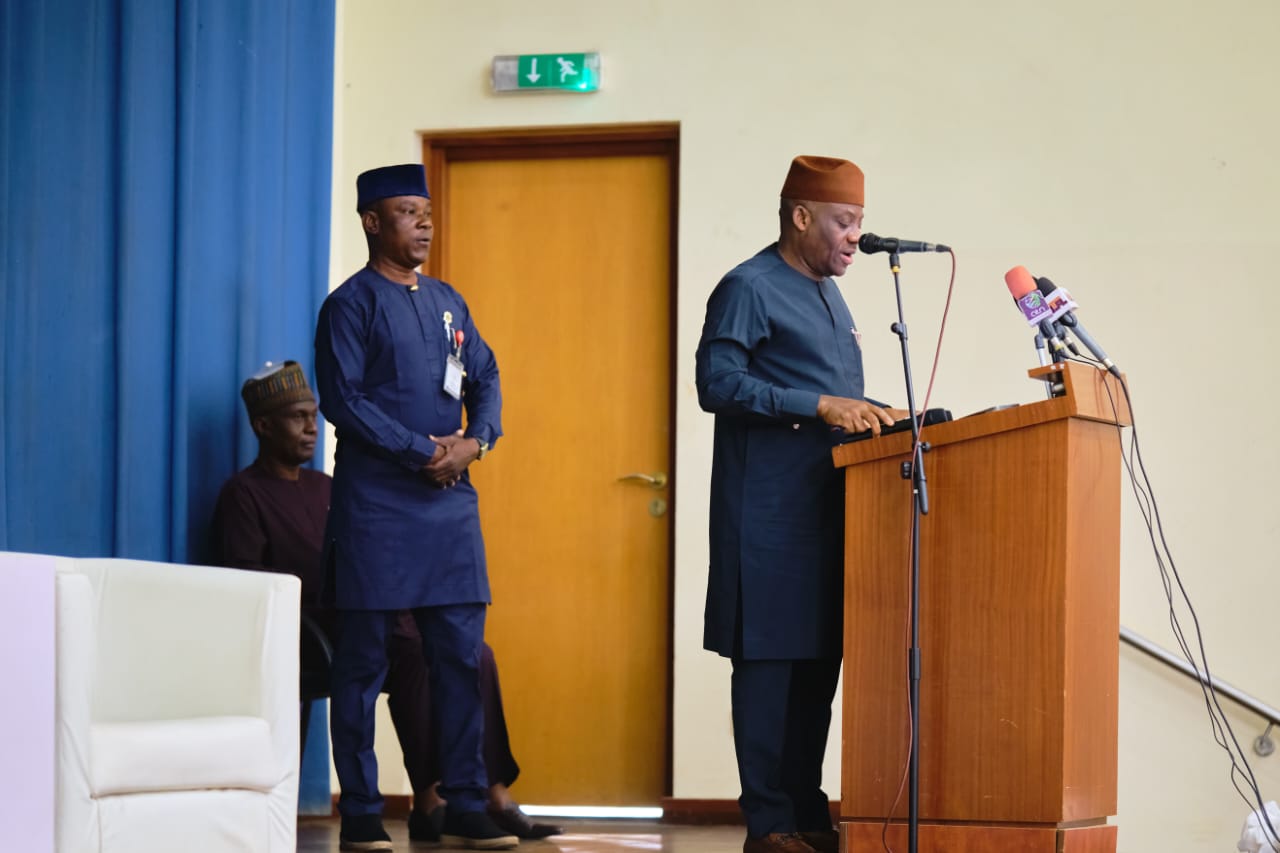
Minister of State for Health and Social Welfare Welfare, Dr. Tunji Alausa, speaking after he was inaugurated as the Chairman of the Implementation Committee for Nigeria’s Digital in Health Initiative
The minister added that the digital in health strategy will create economic spinoffs that will include job creation, unlock new levels of the sector’s value chain, increase revenue, and significantly contribute to the growth of Nigeria’s GDP.
Read Dr. Alausa’s full speech below:
PROTOCOL
It is my pleasure to welcome you to the Inauguration of the Implementation Committee for Nigeria’s Digital in Health Initiative.
Ladies and Gentlemen, today marks a pivotal moment in Nigeria’s healthcare landscape as we embark on a transformative journey towards a national digital healthcare architecture. What exists now, is a lack of uniform data collection and management that has presented the Nigerian healthcare system with numerous challenges. It has limited the development of the health industry, weakened our decision-making and has resulted in inefficient use of resources. This has made it difficult to have a comprehensive view of the healthcare environment.
2. Our healthcare system further suffers from data fragmentation as only a small number of private institutions and federal institutions use Electronic Medical Record (EMR)/ Electronic Health Record (EHR) platforms to keep track of patient data, promote research, provide treatment, and manage operations and resources. While the majority still rely on rudimentary paper-based methods.
3. Despite the existence of these few EMR/EHR platforms, none are standardised to integrate, collect, and manage data across institutions or built to succinctly share patient data in real time. This has led to significant quality gaps in the healthcare system. Therefore, the transition to a digital health infrastructure is not merely a choice but a necessity to revolutionize healthcare delivery in our country.
4. The Digital in Health Initiative will show that digitalization in health goes beyond EMR/HER platforms. We want to rebuild and reposition the digital health environment to include:
i. Data gathering
ii. Data repository
iii. Data servicing and
iv. Service regulation.The platform so created would be such that data can be easily validated. We shall start with an EMR system which just a part of the overall digital ecosystem.
5. Digitalising the healthcare system is one of the key elements to achieving President Bola Ahmed Tinubu GCFR’s vision for the health sector. Having quality data available for use, is one of the key enablers and underpins the entire health delivery system’s framework and is vital to the federal ministry of health and social welfare’s 4-point agenda, which is in tandem with Mr President’s vision. This consists of:
i. Effective governance
ii. Efficient, equitable and quality health System
iii. Unlocking the value chain and
iv. Health Security6. The national unified EMR platform will serve as a central hub to enhance health system efficiency, ensure robust monitoring of public health and disease outbreaks, mortality rates, facilitate seamless data exchange and quality assurance, and foster opportunities for further research to strengthen our national health security. It will also hold our various institutions accountable, and ultimately, allow us to have ownership of our data from the primary to the federal healthcare level for the first time in Nigeria’s history.
7. A national EMR system would enable primary, secondary, and tertiary healthcare personnel to manage clinical and administrative data seamlessly across centres and achieve three immediate benefits:
i) Improved quality of care by providing health care providers with instant access to comprehensive patient records, leading to more accurate diagnosis and personalized treatment plans.ii) Reduced expenditure on health through reduction of tests due to avoided duplication and
iii) Increased staff capacity and productivity, through the reduction of time spent on paper based administrative tasks. All these would lead to better health outcomes for our citizens.
8. The Implementation Committee we are inaugurating today, will midwife data policy, regulation, repository management and serve as an ombudsman to establish a national digital health environment that will support the scale-up of our digital health interventions such as our national unified EMR platform in the first instance.
9. Utilising existing national digital health policies and frameworks i.e., National Health ICT Framework (2015-2020), National Health Information Framework, National Digital Health Policy and National Digital Health Strategy (2021 – 2025), members of the Implementation Committee will be responsible for managing the deployment, architectural design and pilot of the EMR platform, as well as providing guidance for the coordination, implementation and execution of the overarching activities at all levels to drive our health digitalisation agenda. These roles and responsibilities are stated in your letter of appointment and the terms of reference you’ll be receiving today.
10. The EMR platform pilot will initially begin at the federal tertiary hospitals and be implemented in one state per geo-political zone, to gauge its efficiency and accuracy. Once reviewed, we will encourage both public and private sub-national institutions to key in, allowing for a national robust and unified EMR platform.
11. President Bola Ahmed Tinubu GCFR’s vision for the sector is clear; to have an effective and sustainable healthcare system that will allow us to save more lives, reduce both physical and financial pain and produce health for all Nigerians.
12. The formation of this 20-person committee, comprising a diverse group of individuals with extensive experience and pertinent skills in digital health, technology, healthcare administration solidifies our steadfast dedication to fulfilling the president’s mandate to deliver Universal Health Coverage (UHC) for all Nigerians and regain our status as a leading nation in health productivity and care delivery.
13. This Implementation Committee therefore holds the key to realizing our collective vision for the health sector. Your expertise, dedication, and collaborative sprit will be instrumental in navigating the complexities of implementing such a crucial system. You will be supported by a secretariat team and relevant ministerial agencies who will provide support in an operational capacity and facilitate the change management and capacity building at the ministerial level.
14. As we inaugurate this committee today, we are one step closer to creating an environment where Nigerians can rely on our health system to serve them and their families. Additionally, our digital in health strategy will create economic spinoffs that will include job creation, unlock new levels of the sector’s value chain, increase revenue, and significantly contribute to the growth of Nigeria’s GDP.
15. Our main role above all else, is to provide the leadership and governance capacity to motivate the deployment of a National digital in health strategy, strengthen technical and regulatory capacity to shape digitalization in the health ecosystem now and into the future.
16. I extend gratitude to our development partners for their support and collaboration, and my deepest appreciation to the members of the Implementation Committee for Nigeria’s Digital in Health Initiative for accepting this responsibility. Your dedication and expertise are integral to our quest for a healthier, sustainable, and more equitable Nigeria.
17. As Chairman of the committee, I look forward to embarking on this journey with you and urge you to approach this task with diligence, innovation, and a deep commitment to serving the needs of our people. Together, I am confident in our ability to create the digital ecosystem we desire.
18. Thank you all for attending this momentous event.
Click here to watch video of the week
Advertise or Publish a Story on EkoHot Blog:
Kindly contact us at [email protected]. Breaking stories should be sent to the above email and substantiated with pictorial evidence.
Citizen journalists will receive a token as data incentive.
Call or Whatsapp: 0803 561 7233, 0703 414 5611


